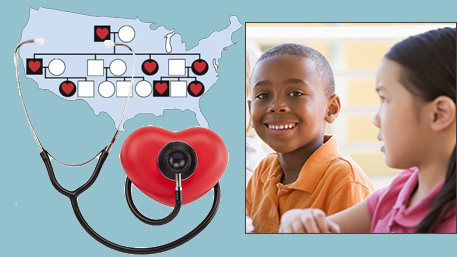Category:
Preeclampsia, Genomics and Public Health

A recent study identified a cell free RNA (cfRNA) signature that was promising in predicting pre-eclampsia several weeks before the onset of symptoms. At 29 weeks pregnant, Erica was diagnosed with preeclampsia, a pregnancy complication marked by high blood pressure and signs of organ failure, most often liver or kidney damage. According to the Mayo Read More >
Posted on by 3 CommentsThe Limits of Risk Prediction: Remembering Cecile Janssens

“The number of possible ‘causal’ [gene-environment] interactions is so enormous that every patient’s disease likely has its own complex and unique cause. This uniqueness limits predictive ability: it is impossible to accurately predict something that has never occurred before.” Cecile Janssens, DNA tells great stories—about the past, not future, WIRED, December 5, 2013 Risk prediction Read More >
Posted on by 5 CommentsFamilial Hypercholesterolemia Screening in Children and Adolescents in the United States: Where Are We Heading?

A September 2022 publication recommended that every European country should have a Familial Hypercholesterolemia program for early detection screening, diagnosis, and care. Familial Hypercholesterolemia (FH) is a genetic condition that results in elevated levels of low-density lipoprotein cholesterol (LDL-C) from birth, resulting in increased risk of heart disease and myocardial infarction. A 2021 blog from Read More >
Posted on byFrom Polygenic Risk Scores to Methylation Risk Scores: What are the Clinical Applications?

A recent study used methylation risk scores to improve predictive value of baseline models for a range of clinical diagnoses and laboratory tests. The ability to understand and predict a person’s risk of disease is an integral component of precision medicine and precision public health. Many factors, including environmental and genetic, contribute to a person’s Read More >
Posted on byGenetic Discrimination and Misuse of Genetic Information: Areas of Possible Discrimination, Current Legislation, and Potential Limitations

The emergence and the rapid development of various genetic technologies and their incorporation into precision medicine have greatly expanded medicine’s capabilities. At the same time, concerns about the availability and dissemination of vast amounts of personally relevant data have focused attention on potential problems of genetic discrimination. Over the past three decades, concerns about genetic discrimination Read More >
Posted on by

